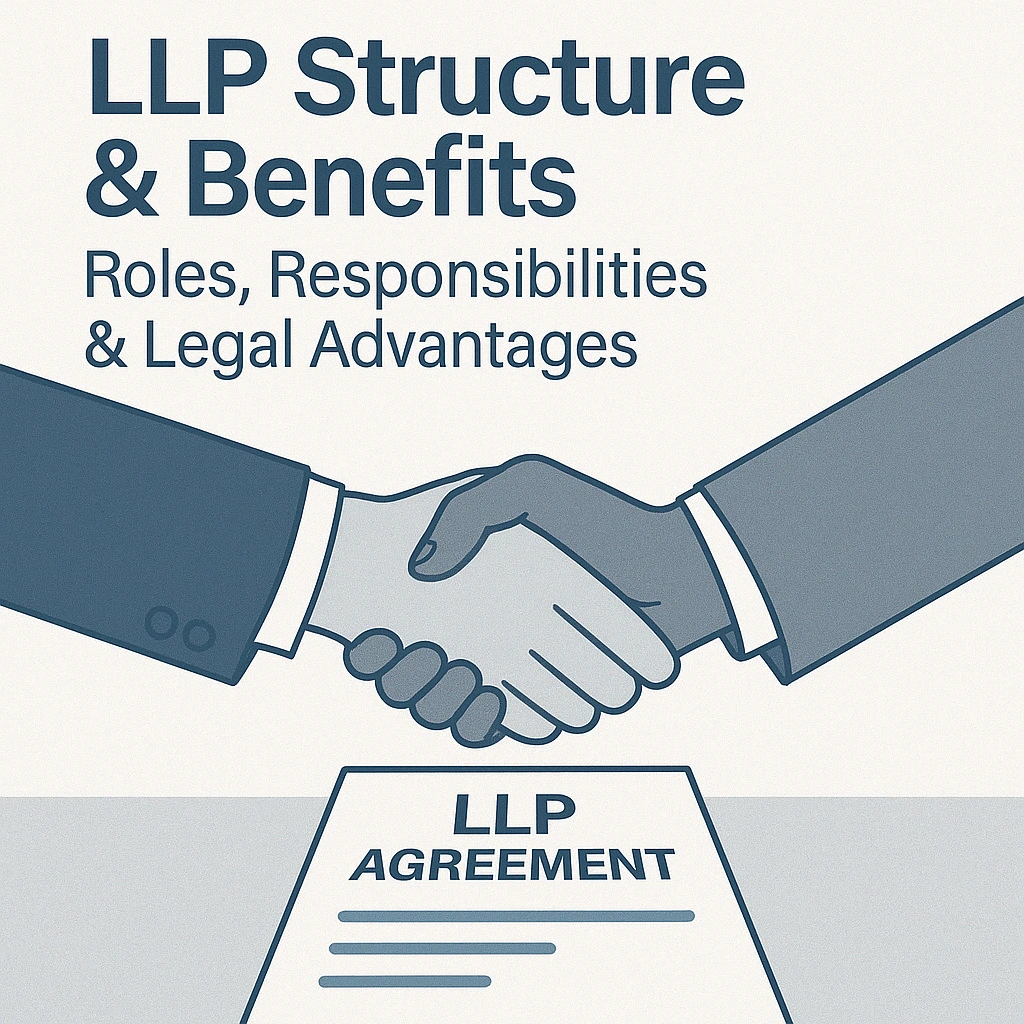
LLP Structure Explained: Key Roles, Legal Duties & Benefits
Understand how Limited Liability Partnerships work, the responsibilities of designated members, and how LLPs compare to LTDs for UK professionals.
Limited Liability Partnerships: The Key Responsibilities and Benefits
A Limited Liability Partnership (LLP) provides participants with limited liability for the debts and obligations of the enterprise, only up to the amount predetermined between the partners. This structure offers flexibility and protection, making it a popular choice for various types of businesses.
Structure and Participants
In an LLP, partners and managers can be individuals or legal entities of any residency. This flexibility allows for a diverse range of participants, which can be beneficial for clients unable to form an LTD company due to their occupation, such as those engaged in intellectual work. An LLP is particularly suitable for such clients, offering a professional structure that accommodates their unique needs.
Setting Up an LLP
In order to set up an LLP, you should create an LLP agreement with any other members, which outlines how the LLP will be run, including profit sharing, decision-making processes, members’ responsibilities, and the procedures for joining or leaving the LLP. Furthermore, establishing clear guidelines from the outset helps ensure smooth operations and reduces potential conflicts among members.
Registration Requirements
Every member of an LLP must register for Self Assessment with HM Revenue and Customs (HMRC). Additionally, designated members have more responsibilities than ordinary members. They must register the business for Self Assessment and VAT if the business’s sales exceed £85,000 a year. Designated members are also responsible for appointing an auditor if needed, keeping accounting records, preparing and sending annual accounts to Companies House, and submitting a confirmation statement.
Legal Responsibilities of Designated Members
Designated members must notify Companies House about any changes, such as modifications to the registered name or address or changes in membership. They play a crucial role in maintaining compliance and ensuring that the LLP meets all legal obligations. Failure to fulfill these responsibilities can result in prosecution, highlighting the importance of their role within the partnership.
Conclusion
In conclusion, an LLP offers a flexible and protective structure for businesses, especially for those in occupations unsuitable for LTD companies. Understanding the roles and responsibilities of designated members is crucial for maintaining compliance and ensuring the success of the LLP. Proper setup, clear agreements, and diligent management are key components for operating a successful LLP.
About Golden Tree Consulting
Financial expert at Golden Tree Consulting
Helping businesses in Croydon navigate financial complexities with tailored solutions
More Articles You Might Like
Continue exploring our financial insights

Do I Need an Accountant for My Croydon Business?
Not sure if your Croydon business needs an accountant? Learn the difference between bookkeeping and accounting, and when it’s time to get professional help.

Why UK Startups Are Choosing Estonia for Company Formation
Explore why Estonia is ideal for UK startups. Learn how digital-first systems, zero corporate tax on retained profits, and fast company formation make Estonia a smart move for growth.

How to Choose the Right Local Accountant in Surrey, Kent & London
Looking for an accountant in Croydon, Reigate, or Surrey? Learn how to choose a local accountant who understands small business finances and helps you save time and money.
